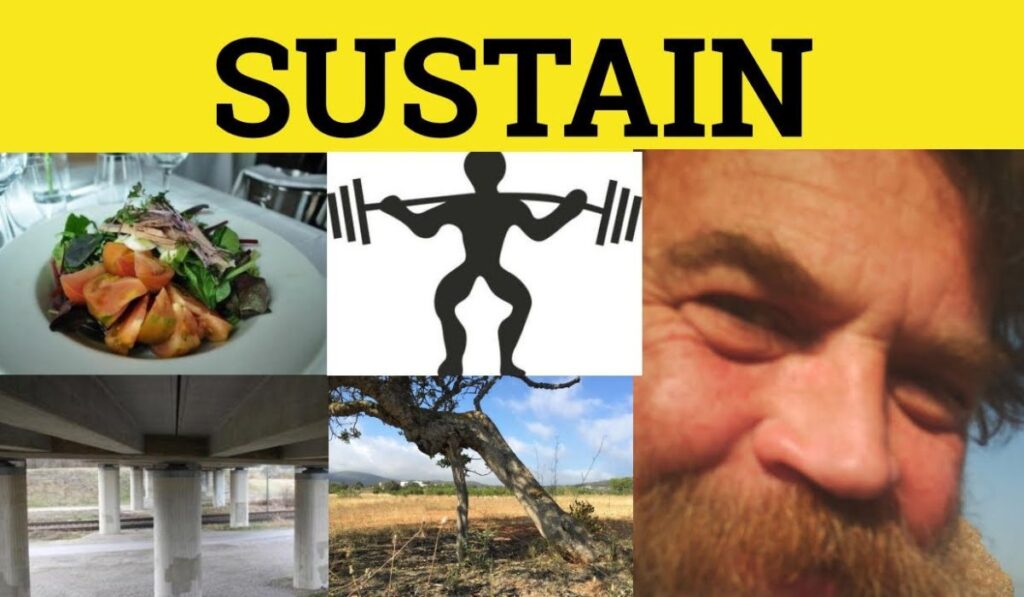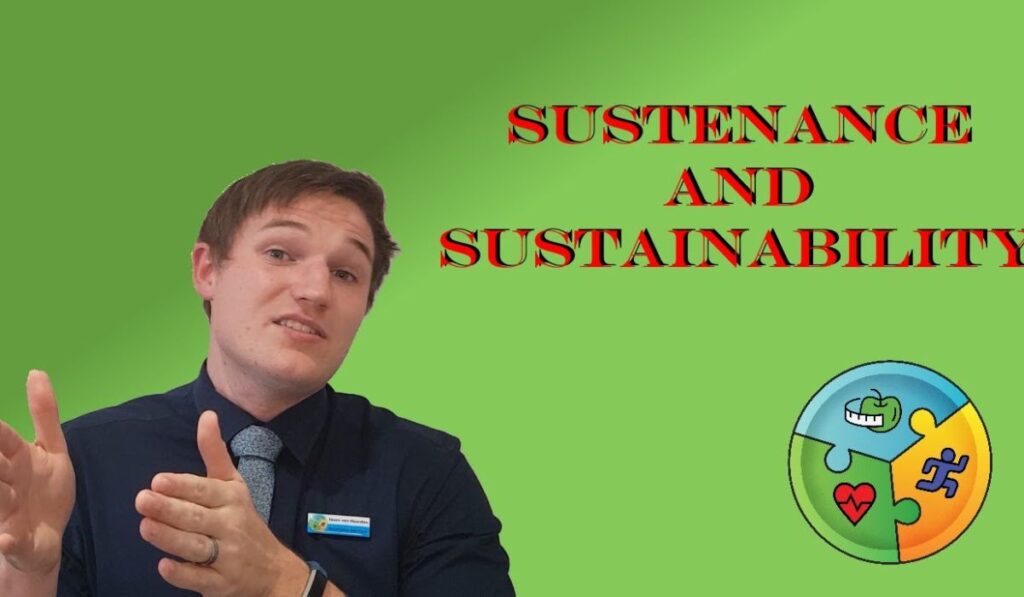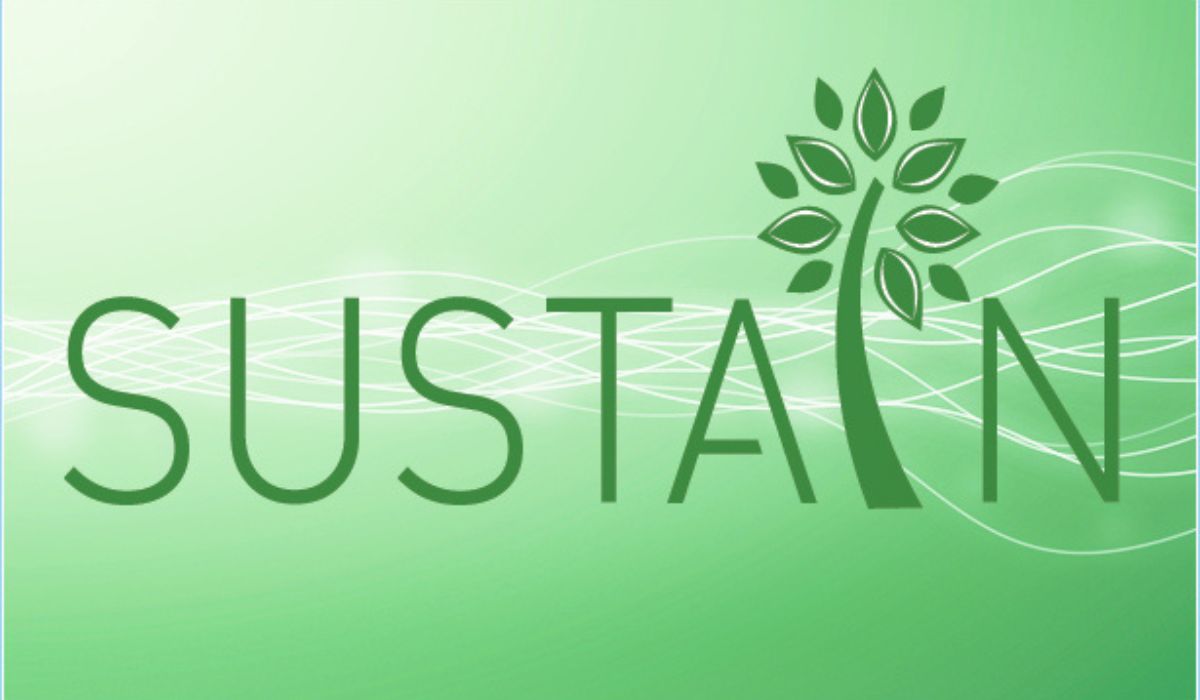The concept of “sustain” in biblical terms extends far beyond the simple idea of survival or physical support.
It encapsulates God’s ongoing care and provision, both in the material and spiritual realms. To truly understand the depths of what it means for God to “sustain,” we must explore the biblical interpretations, metaphors, and promises found in Scripture.
This post will unpack the layers of this powerful term, from divine provision and spiritual nourishment to the eternal sustainability promised in Christ.
What Does ‘Sustain’ Mean Biblically?

In the Bible, sustain carries several meanings.
It can refer to physical sustenance such as food, water, and shelter, but also to emotional and spiritual nourishment, as well as divine protection and guidance.
The Hebrew and Greek lexicons provide us with the original language roots for the term, offering insights into its deeper implications.
Hebrew and Greek Lexicon
In the Hebrew Bible, the word “sustain” is often translated from sābar (סָבַר), which means to “support,” “bear,” or “uphold.”
This is often used in contexts where God actively supports His people, ensuring their survival, or offering care during times of distress.
In the Greek New Testament, the equivalent term epiméleia (ἐπιμέλεια) means care, maintenance, or support, emphasizing God’s active involvement in our lives.
Together, these terms paint a picture of divine engagement God is not a distant creator but a hands-on provider who cares for His creation continually.
Biblical Meaning: God as Sustainer
God as Sustainer is a central biblical theme.
From the creation narrative in Genesis to the teachings of Jesus in the New Testament, Scripture repeatedly demonstrates how God upholds all of creation.
His divine provision is not just a one-time event but an ongoing act of faithful nurture. God’s care encompasses physical sustenance, such as the provision of food and water, as well as spiritual nourishment, like peace and joy in times of hardship.
Physical Sustenance: God’s Daily Provision
God provides for us in the most practical ways.
From the miraculous provision of manna for the Israelites in the wilderness (Exodus 16) to the water from the rock (Exodus 17), we see God’s commitment to sustaining His people through difficult circumstances.
In the New Testament, Jesus continues this theme, particularly with the miracles of Jesus, where He provides for the physical needs of the multitudes.
Notably, in Matthew 14:13-21, He feeds 5,000 people with five loaves and two fish, symbolizing God’s eternal ability to provide.
Examples of Physical Sustenance:
- Manna from Heaven: A divine miracle that provided food for the Israelites during their desert wanderings (Exodus 16).
- Water from the Rock: God’s provision of water for His people when they were in dire need (Exodus 17).
- Feeding the 5,000: Jesus’ miraculous feeding of a crowd with a small amount of food (Matthew 14:13-21).
Emotional and Spiritual Sustenance
God doesn’t just meet our physical needs; He also sustains us emotionally and spiritually. Psalms 119:116 reminds us, “Sustain me according to your word, that I may live.”
This verse highlights how God sustains us through His word, offering comfort and guidance during times of distress.
Spiritual nourishment involves God’s peace that transcends understanding, the joy of salvation, and the strength to endure through trials.
Emotional Sustenance:
- Psalm 23:1: “The Lord is my shepherd; I shall not want.” This speaks to God’s provision of emotional peace and stability.
- Isaiah 40:29: “He gives strength to the weary and increases the power of the weak.” God’s emotional support empowers believers during times of fatigue and discouragement.
Divine Protection: A Shield of Sustenance

Another significant aspect of divine sustenance is God’s protection. Throughout the Bible, we see divine protection as an essential part of God’s care for His people.
From Job’s suffering to Peter’s escape from prison (Acts 12), God protects His people from harm, showing that His sustenance extends beyond mere provision of material needs.
Examples of Divine Protection:
- Job: Despite suffering, God sustains Job through His protection and eventual restoration.
- David: In many Psalms, David praises God for His shelter from enemies and dangers (Psalm 18).
- Peter’s Escape from Prison: In Acts 12, God miraculously intervenes to protect Peter and sustain the early church.
Jesus Christ: The Bread of Life
One of the most powerful metaphors for spiritual nourishment in the Bible is found in John 6:35, where Jesus declares, “I am the Bread of Life.”
This declaration goes far beyond the physical concept of bread as food it speaks to spiritual sustenance, indicating that Jesus Himself is the ultimate source of nourishment for our souls.
Communion as an Act of Sustaining Grace
The act of Communion (or Eucharist) is a tangible representation of this truth.
When Christians partake in the bread and wine, they remember and receive the sustenance Christ offers through His body and blood.
This sacrament symbolizes the ongoing relationship between believers and the Bread of Life who sustains us spiritually.
Miracles of Jesus and Their Meaning
Throughout His ministry, Jesus performed many miracles that revealed God’s sustaining power.
The feeding of the 5,000 (Matthew 14:13-21) is a prime example, where Jesus not only met the physical needs of the crowd but also pointed to a deeper truth:
God sustains us both physically and spiritually. This act demonstrates that Jesus is the Bread of Life who offers eternal sustenance.
Table: Key Miracles of Jesus and Their Connection to Sustenance
| Miracle | Scripture Reference | Meaning and Significance |
|---|---|---|
| Feeding the 5,000 | Matthew 14:13-21 | Jesus provides physical nourishment and spiritual teaching. |
| Turning water into wine | John 2:1-11 | Jesus reveals His power to bring abundance from lack. |
| Healing the sick | Matthew 4:24 | Jesus sustains through healing, restoring physical and emotional health. |
| Raising the dead | John 11:38-44 | Jesus sustains life itself, offering eternal spiritual nourishment. |
Faith, Hope, and Love: The Christian Path to Sustainability

The Christian life involves more than just receiving sustenance from God. We are called to be faithful stewards, managing the gifts and resources that God provides.
Biblical stewardship isn’t limited to wealth it’s a holistic approach that encompasses spiritual, emotional, and physical care for others and for creation.
Stewardship: Our Role in God’s Sustainable Plan
Stewardship involves the responsible management of God’s gifts, from our earthly resources to our spiritual gifts.
Scriptures like Genesis 2:15 and Psalm 24:1 remind us that the earth belongs to God, and we are entrusted with the care of it.
This divine mandate calls for prudence wisdom in managing our resources for God’s glory and for the well-being of others.
Examples of Stewardship in the Bible:
- Genesis 2:15: Humanity is given the task to “till and keep” the earth.
- Luke 12:16-21: The Parable of the Rich Fool warns against hoarding wealth without considering God’s kingdom.
Eternal Sustainability: The Promise of Resurrection

Perhaps the most profound aspect of God’s sustaining power is His promise of eternal life.
In 1 Corinthians 15:20-22, Paul declares that through Jesus’ resurrection, we have the hope of eternal sustainability.
The resurrection represents the ultimate form of divine sustenance, offering life beyond physical death.
Hope in Eternal Life
The promise of eternal life is the culmination of God’s sustaining work. It assures believers that death is not the end.
Through Christ’s resurrection, we are promised that our lives are eternally sustained in God’s presence.
This hope sustains us through the trials and sufferings of life, knowing that ultimate restoration awaits.
Frequently Asked Questions
What is the Full Meaning of “Sustain”?
The word “sustain” refers to providing support, maintenance, or nourishment, ensuring something continues over time.
What Does It Mean When They Say “Sustain”?
To “sustain” means to uphold, nourish, or maintain something, often with an emphasis on long-term support.
What Does “Sustain” Mean in Life?
In life, “sustain” refers to the ongoing support, care, and strength needed to endure challenges or continue flourishing.
How Do You Explain “Sustain”?
“Sustain” is the act of providing necessary resources, care, or encouragement to ensure survival, growth, or stability.
Conclusion
The concept of sustain in the Bible stretches across all dimensions of life.
God is not only the creator of life but also the Sustainer of life, providing for our physical, emotional, and spiritual needs.
From the miracles of Jesus to the eternal promises of resurrection, we see that God’s sustaining power is both present and future.
As believers, we are called to trust in God’s provision and to live out the principles of faith, hope, and love as we steward His gifts.
With this understanding, we can live confidently, knowing that God will sustain us through every season of life.











